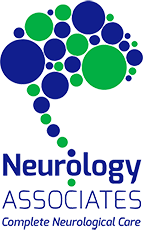Symptoms that Determine When to See a Neurologist in Leesburg, VA for Your Headaches
Many people tend to perceive headaches as a minor or trivial complaint. However,
according to the World Health Organization (WHO), headaches are the third leading cause of disability in the world. It is also the number one leading cause of disability in people under the age of 50. (https://my.clevelandclinic.org/health/diseases/9639-headaches-in-adults)
Even though headaches are extremely common, when they occur repeatedly it can be a symptom of a headache disorder. Headaches can be painful and debilitating at times, however you can take action to limit disruption of your daily life. Consult with a neurologist in Leesburg for a better understanding of your headaches and how to help keep them from effecting the quality of everyday life.
Categories of Headaches
There are two categories of headaches:
- Primary headaches: These occur independently and are not caused by another medical condition. These include migraine headaches, tension type headaches, and cluster headaches
- Secondary headaches: These can occur as symptoms of another health disorder that causes pain sensitive nerve endings to be pressed, pulled, or pushed out of place. These include sinus headaches, medication overuse headaches, or headaches from an infection, disease of the brain, head injury, or tumor.
Headache Symptoms That May Require a Neurologist
While not all headaches will warrant a visit to a physician, some do require immediate medical care. If you, or someone you know experience any of the following symptoms and live in Northern Virginia, Dr. Sarbjot Dulai—a Leesburg neurology specialist—is ready to review your symptoms and find a diagnosis and treatment that is best for you. These symptoms include but are not limited to:
- Sudden and severe headache that may be accompanied by a stiff neck
- Severe headache accompanied by fever, nausea, or vomiting that is not related to another illness
- A “first” or “worst” headache that is often accompanied by confusion, weakness, double vision, or loss of consciousness.
- Headache that worsens over days/weeks, or has change in pattern and behavior
- Recurring headaches in children
- Headache following an injury
- Headache and loss of sensation or weakness in any part of the body (these could be signs of a stroke)
- Headache associated with convulsions
- Headache associated with shortness of breath
- Two or more headaches a week
- Persistent headache in someone who has been previously headache free, especially in someone over the age 50
- New headaches in someone with a history of cancer or HIV/AIDS. (https://www.ninds.nih.gov/disorders/patient-caregiver-education/hope-through-research/headache-hope-through-research)
Keeping a headache journal can help you when you see a physician. After a headache, note the time of day it occurred, its intensity, duration, and sensitivities to light, odor, or sound. Notate if you used any prescription/nonprescription medications, the amount of sleep you had the previous night, weather condition that day, foods, and drinks consumed, and any stressful or emotional conditions. This information can help your doctor in diagnosing your headaches and deciding how to proceed in treatment.
Treatment
A doctor will use your medical history as well as your headache history, a physical and neurological exam, and possible diagnostic tests to help identify or rule out conditions that might be the cause of your headaches. Treatment for your headaches may not be a quick fix. It may take some time for your doctor to determine the best course of treatment for you.
To find out more and for a comprehensive review of your own symptoms, visit our offices in Leesburg. Neurology specialist Dr. Sarbjot Dulai can help determine the best path to treat your headaches and provide relief.






